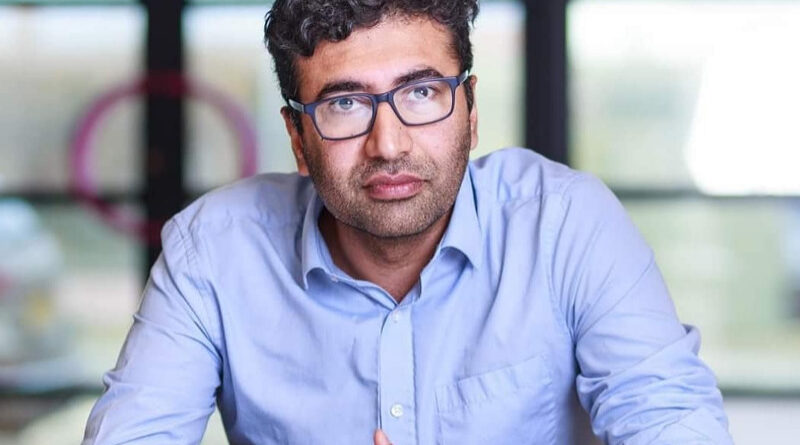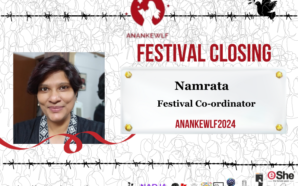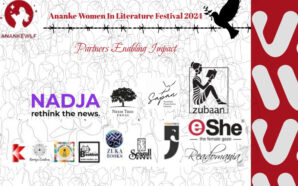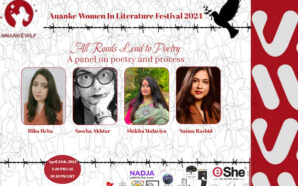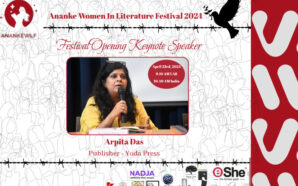You transform Sufi poet Amir KhusroŌĆÖs dastan┬Ā ŌĆ£The Tale of Four DervishesŌĆØ into a surreal and fantastical novel. What inspired you to do this?
I grew up reading tales similar to Amir KhusroŌĆÖs dastan, of wandering fakirs, lost princes and talking animals. I have fond memories of the magical worlds they introduce me to. Dastan is a very effective way to build multi-layered narratives. The Tale of Four Dervishes in particular offers the rather unusual setting of a graveyard, which I thought was the appropriate backdrop for my dark, gothic stories. So, it was both nostalgia and utility.
As a translator, what are some of the challenges you face while translating? Do you feel that while much is lost during translation, much is gained as well?
Translation is not merely the mechanical import of textual meaning from one language to another. As well as understanding the source and the target languages, it also requires understanding the writerŌĆÖs vision and their cultural context. The words, and the meaning they import, can surely be elusive but itŌĆÖs this vision and context that are important to understand. I often read original literary texts side by side with their translations and it strikes me how much a translatorŌĆÖs understanding of the writer’s vision makes the experience doubly enjoyable. It is, however, inevitable to come across concepts that may not be readily translatable, due to cultural or linguistic nuances for example, which make you think about creative ways to convey the meaning and message of the text. But as Umberto Eco famously called it a negotiation, often such problems result in making the process enriching in many ways.
What has been your motivation behind being a language scholar, (I read somewhere that you know nine languages!)? How do you pick and choose which languages you want to learn?
IŌĆÖve been fascinated with history since a very young age and I wanted to understand the worlds, the historical characters that I was reading about had lived in. I imagined that understanding their languages was the key to know them better. For example, when I read about the Turkic king Humayun escaping to the Safavid court in Qazvin from an Indian battlefield, or the Armenian mystic Sarmad migrating to Delhi from Isfahan, I wanted to learn the languages they all might have spoken. Then when I started reading ‘serious’ literature, I wanted to read it in the original language it was created in. So, I taught myself French and Italian because I wanted to read Voltaire or Italo Calvino in their own words. Then it just turned into an addiction, and IŌĆÖve been learning languages ever since. On the other hand, I also realised that I couldnŌĆÖt read everything I wanted to read in all the languages of the world and thatŌĆÖs why translations and translators are essential for the discovery of literary traditions from around the world. I generally learn a language for the historical or literary significance it holds for me.
What language do you think in?
You tend to think in the languages that you most use. These are currently Urdu and English for me, the two languages I use to communicate with my family and at work. In the past, I have lived with Panjabi and Saraiki family members and Persian and Sindhi speaking friends, and these languages became part of my thinking life in those times. I still find it easier to think in these languages more easily than some other languages IŌĆÖve acquired.
There is much that has been said about the linguistic coloniality of the English language. However, the double bind of colonialism has also left no other language universal enough to popularise lesser-known works of literature. What do you think can alter the hegemony of English language? Is there a need to?
The universality of English and the scope of its hegemony are indeed unprecedented. It seems to be establishing its roots even deeper, whether it is due to the colonial hegemony of Britain in the past or the cultural hegemony of America in our own times. It has more or less become the language of the urban youth in many countries beyond the English-speaking world, for example. In a way, it means that a work of literature produced in English has better chances to gain wider audiences than any other language. Subsequently, we see many writers who are comfortable with both English and another local language, letŌĆÖs say, Hindi, preferring to write in English (not a new concept obviously ŌĆō Iqbal and Ghalib, the leading Urdu poets of the last two centuries chose to write in Persian to gain access to literary worlds beyond what Urdu offered them). It seems that it would need a great cultural upheaval to disturb this hegemony, which though may seem very unlikely at the moment, is indeed possible, as we have witnessed since the times of Sumer and Akkad.
What is your second novel ŌĆ£Migrant Cranes and Nameless DogsŌĆØ about?
My second novel is about Pakistani society as seen from two different points of view, one of a child growing up in the eighties and the other of an outsider in more or less our times. It is set in the immediate aftermath of the death of a dictator, and tries to examine the impacts of this individualŌĆÖs legacy on the society, especially minorities, and in particular the Shia minority of Pakistan.
You have now participated in AnankeŌĆÖs Women in Literature Festival. What do you think about the thematic conversations that the festival is going to engage with? Do you think such festivals have impact on the ground?
I think the spirit and ethos of the festival with its emphasis on women in literature is very promising. The festival has an impressive list of panels and discussions that focus on important themes and issues such as feminism, gender equality and social justice. It is providing a space for diverse voices to be heard and for meaningful conversations to take place. I was in particular interested in the session on inclusive publishing. The panel had some of the leading women from the publishing industry in South Asia. Other panels have equally inspiring themes, such as the power of womanhood and personal agency. Having such discussions can be instrumental in bringing change by raising awareness, educating people, promoting collaboration and driving policy change.
When we talk about translation and language, we often remain caught up with the ŌĆśtextŌĆÖ. However, the translator also experiences and undergoes a migratory experience. What kind of a paradigmatic shift does the translator experience while translating works that are transnational?
These shifts can be felt at many levels. At a very basic level, there is a linguistic shift that involves the translator to convey the meaning from the source to the target language. Then there is cultural migration that may enable the translator to trespass spatial as well as temporal territories. As an example, in order to translate the work of the thirteenth century Persian poet Hafez, you not only need to understand and translate the text from the language he is writing in, but also the themes, imagery, metaphors in vogue at that time in the Persian speaking world. And in order to make the meaning and message of the source text available to the readers who are not necessarily familiar with this imagery, you may have to put it in the dress of the target language. So, you are constantly moving between these two very different worlds.
Any concluding remarks.
I would like to thank the organisers of AnankeŌĆÖs Women in Literature Festival, especially Sabin Muzaffar, for inviting me to chair one of the events and for the launch of Uljha Gham, which is my translation of Knotted Grief, the debut poetry anthology by Naveen Kishore. And thank you for your time and these very thought-provoking questions.
Ankita is a writer, thinker, and content creator whose work revolves around gender, sexuality, and digital desires. She is a communications associate at the Delhi-based organisation Nirantar Trust-A Centre for Gender and Education. When she’s not busy petting every cat on the street, she is found dreaming of feminist utopias.




